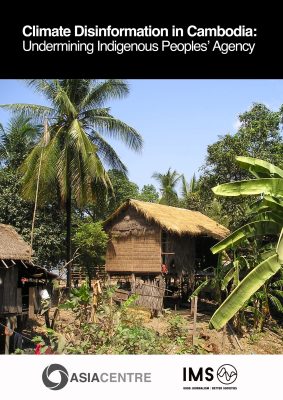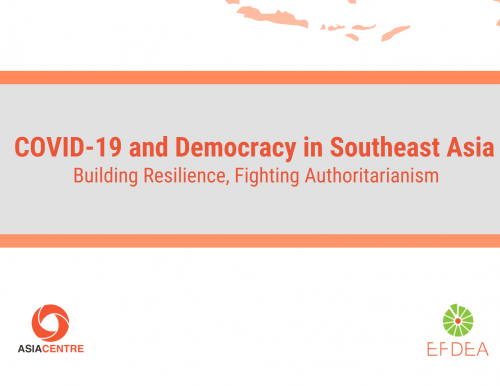
In Cambodia, the rise of digital media and social media platforms since the mid-2010s has intensified a surge in climate disinformation. It affects Indigenous Peoples (IPs), who make up about 3% of the population and live in forests highly vulnerable to climate change and deforestation. From false climate solutions to greenwashing and denial of deforestation, these narratives contribute to IPs’ exclusion from meaningful climate discussions, land dispossession and the criminalisation and silencing of environmental defenders. This report explores how both online and face-to-face climate disinformation – often state-aligned – restrains IPs’ voices, discredits Indigenous knowledge and legitimises harmful environmental practices, ultimately undermining IPs’ agency to take corrective action. The report offers concrete policy recommendations, urging governments, international and local actors to integrate climate disinformation into human rights monitoring, support Indigenous-led initiatives and strengthen digital access. Tackling climate disinformation is key to ensuring just, inclusive, and effective climate action in Cambodia and beyond.



